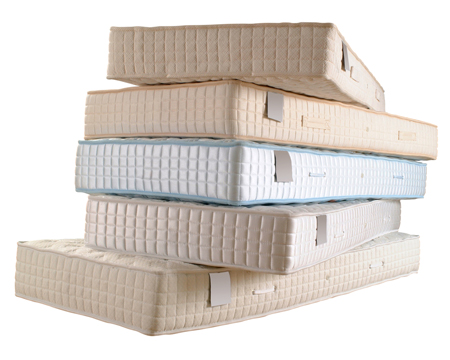Mattresses are pretty expensive – one quick glance at our buyer’s guide will confirm this fact. This is why many people do not replace them – not even after many years of use.
They do not want to spend a lot of money on a new one. Besides, now you can delay the process of buying a new one if you do an excellent job at maintaining your existing one. So, how often should you replace your mattress?
Most mattresses will last at least 5 to 7 years, however, there are many other factors that affect its lifespan.
You can extend its life expectancy by following a few easy steps in the text below. We prepared and wrote down some tips to boost its longevity.
Type of Mattress
The kind you own plays an integral part in dictating the average life of your bed. You have air, innerspring, latex, and memory foam mattresses. Among these, innerspring and air mattresses have the shortest lifespan. Memory foam and pillow tops have a mid-lifespan, and latex bed has last the longest.

Daily Cleaning
Beds that last longer are the ones that are often maintained with care. Proper use includes sleeping for as many hours per day as you need — don’t sleep more than you need. This means no eating and spilling beverages on them. After sleep, you should always fold the bedding and change the sheets after a couple of days of use.
Usage
The lifespan also depends on its usage. Naturally, the more you use it, the shorter its lifespan. It will not last for long if you use it wrong, no matter which type you own. For instance, some couples use the same one for more than 10 hours per day. Moreover, if you do not clean it regularly, it can also get damaged fast.
Need help? Check out our tips on how to clean your mattress.
Summary
As you can see, the type of mattress, cleaning method, and the right way of usage are essential. These factors determine how long your bed will last. If you follow some of the tips offered in this article, it will aid you in increasing the lifespan of your bedding. It will also keep you healthier and improve your sleep quality.
If you are in desperate need of a new one, be sure to capitalize on mattress sales on Black Friday or Cyber Monday, or check out our coupon page for everyday deals.
Jill Zwarensteyn
Editor
About Author
Jill Zwarensteyn is the Editor for Sleep Advisor and a Certified Sleep Science Coach. She is enthusiastic about providing helpful and engaging information on all things sleep and wellness.
Combination Sleeper
